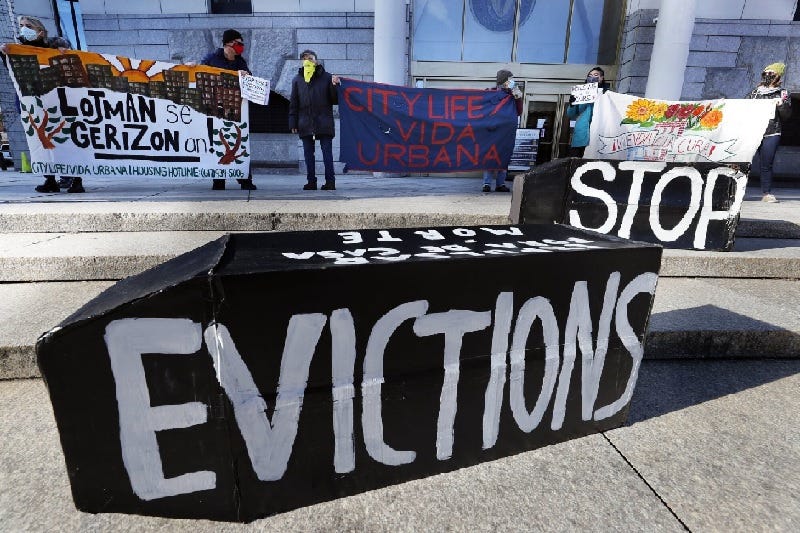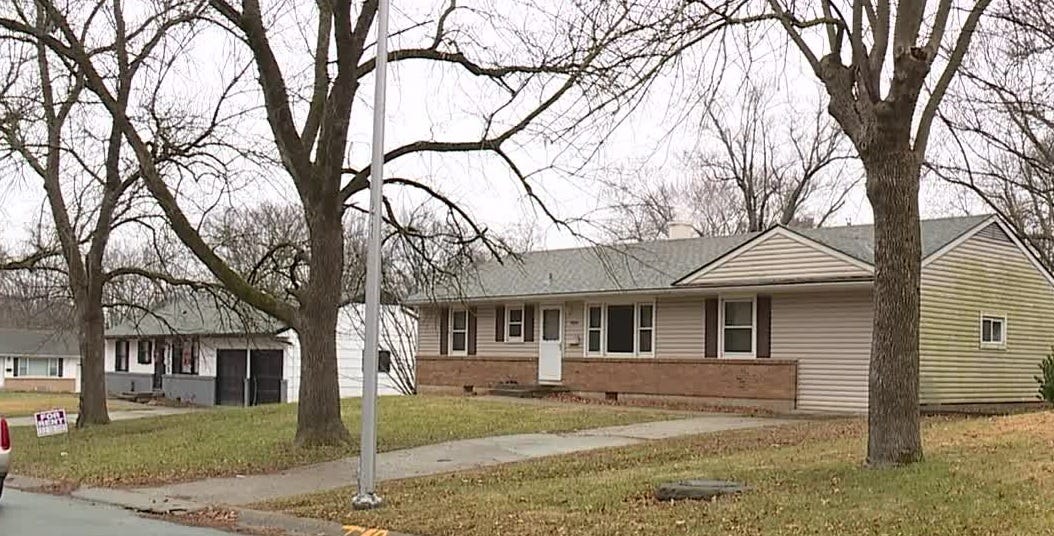Federal judge ends some tenants' scams under the CDC nationwide COVID eviction ban
Judge says order was "overreach"; many renters were taking advantage of the order and not paying rent they could actually afford to pay
A federal judge Wednesday ruled the nationwide eviction moratorium issued by the Centers for Disease Control was an overreach by the agency, ending an abuse by renters who were scamming their landlords. (Photo Illustration: ACV)
A federal judge on Wednesday vacated a nationwide freeze on evictions that was put in place by federal health officials to help cash-strapped renters remain in their homes during the pandemic.
The ruling was a win for a coalition of property owners and realtors, who brought one of several challenges against the Centers for Disease Control and Prevention's (CDC) eviction moratorium, which was first enacted under former President Trump and later extended through June.
A number of eviction freezes enacted by state and local governments will not be affected by Wednesday’s ruling, which concerns only the federal moratorium. The decision comes as landlords have sought to remove tens of thousands of tenants who have been unable or unwilling to pay rent due to claimed financial hardship.
In a 20-page ruling, U.S. District Court Judge Dabney Friedrich, who was appointed by President Donald Trump, ruled that the agency exceeded its authority with the temporary ban.
"The question for the Court is a narrow one: Does the Public Health Service Act grant the CDC the legal authority to impose a nationwide eviction moratorium? It does not," Friedrich wrote. A number of other judges have ruled on the eviction ban’s lawfulness, with landlords holding a slight advantage in their win-loss record against the federal government.
While some judges have limited the scope of their rulings to apply only to the parties involved in the particular lawsuits before them, Friedrich rebuffed the federal government’s request that she narrow the effect of her decision, indicating its reach would be nationwide.
“The Department urges the Court to limit any vacatur” — Latin for “it is vacated” — “order to the plaintiffs with standing before this Court. This position is at odds with settled precedent,” she wrote, citing prior court rulings.
The Department of Justice (DOJ), which represents the CDC in legal disputes, was not immediately available for comment. White House press secretary Jen Psaki told reporters that DOJ is reviewing the court’s decision and should have “more to say later” Wednesday.
Anti-eviction demonstrations have, in many cities, become extensions of the BLM and Antifa riots, indicating the CDC’s “eviction moratorium” struck down Wednesday was being used as a Fascist Left attack on landlords as part of the U.S. corporate structure. (Photo: Michael Dwyer/Associated Press)
Luke Wake, an attorney at Pacific Legal Foundation that represents landlords in a number of related lawsuits, called the ruling a clear signal that the tide has turned against the CDC.
“The challengers have been right all along,” he said. “The government has no authority against any landlord. Full stop.”
Enacted in September as a public health measure, the CDC order was designed to mitigate the spread of coronavirus by helping alleged financially distressed tenants remain in their homes instead of forcing them into homeless shelters or other crowded living spaces. Most such tenants were, in fact, financially distressed, but many were not and scammed their landlords, using the moratorium as a shield.
The problem many landlords across the U.S. have had is that many of their tenants, though able to pay their rent, refused to do so in what has amounted to the legal definition of fraud. Some landlords have said they have also lost their livelihood in the process, and in many cases are unable to get a timely reprieve.
"You can't sell your house, you can't rent it, you can't do anything with it and nobody will come to your aid. I haven't had any luck with anybody so far," said one Greensboro, North Carolina landlord, contacted by America’s Conservative Voice, who did not want to be identified.
That landlord said his tenant owes seven months of rent. According to him, the tenant has refused to pay any money towards paying the debt down even though, through federal unemployment subsidies the tenant admits to receiving, he could afford to do so.
Renters demonstrate their eligibility for CDC eviction protections by signing a sworn declaration under penalty of perjury, attesting that they would face homelessness or overcrowded conditions if evicted, and certifying that they have made partial rent payments to the best of their ability.
Corporate landlords filed more than 56,000 eviction actions since the eviction pause took effect last September, with almost half of those filed this year, according to a study by the Private Equity Stakeholder Project of seven states. Filings allege some of those tenants have, in fact, made no partial good-faith payments as they have claimed.
Many states ignored the eviction moratorium while it was in effect. One Kansas City television station lamented that a judge in Jackson County paid no attention to it when ordering the eviction of a woman who had not paid rent in over two years. (Photo: KSHB-TV41)
Those notices, which don’t always lead to evictions, are being sent even as billions in rental assistance authorized by Congress continues to make its way from Washington, D.C. to tenants claiming to be in need of aid. Experts say there is no nationwide data tracking how many notices have led to evictions during the freeze.
Reports from media outlets and tenants’ rights groups reveal instances where judges in Georgia, Missouri, North Carolina, Ohio and Tennessee either diverged from the CDC order or disregarded the protections completely. In Texas, a judicial advisory panel last month explicitly gave a green light to state courts to ignore the federal moratorium.
Biden and his White House cabal have come under fire from housing advocates who say his administration has turned a blind eye while the eviction freeze was flouted. The moratorium has provided for penalties of up to $200,000 and a year in jail, but DOJ has not filed any criminal charges for violations.
DOJ has mounted a vigorous defense of the moratorium against constitutional challenges, though it's unclear if the department intends to appeal the Wednesday ruling.
Housing advocates including the National Low Income Housing Coalition (NLIHC) called on DOJ to issue a bold response.
“The DOJ should immediately appeal the flawed ruling and the Biden administration should continue to vigorously defend and enforce the moratorium, at least until emergency rental assistance provided by Congress reaches the renters who need it to remain stably housed,” said NLIHC president Diane Yentel.
Landlord associations around the country, however, applaud the ruling and countless attorneys for those associations point out the ruling follows the law implicitly in finding there is no authority for the CDC’s action in issuing the moratorium. Wake, the attorney at Pacific Legal Foundation, told ACV he is confident the ruling will survive all appeals.







